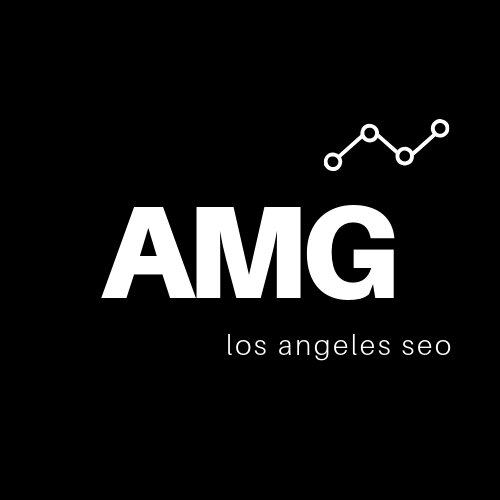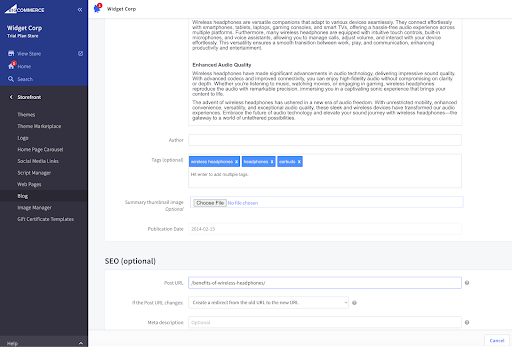BigCommerce vs Shopify for SEO
One of the first questions asked by future ecommerce business owners should be - is BigCommerce or Shopify better for SEO?
This is an important question, as you want to give your future store the best opportunity to rank in search engines. There are over 24 million ecommerce stores out there, and search engine visibility is crucial for success.
The answer is that both Shopify and BigCommerce offer the tools to give you a solid SEO base — along with a few annoying quirks.
Similarities Between BigCommerce & Shopify
First, there are a few important SEO features that Shopify and BigCommerce share:
Both platforms allow you to set on-page SEO basics like title tags, meta descriptions, heading tags, and ALT attributes on images.
Both platforms automatically create an XML and HTML sitemap for your ecommerce store.
Both platforms boast having more than 99.99% uptime.
Both platforms integrate with Google Analytics and other data tools.
Both platforms offer mobile-friendly, responsive design themes.
Both platforms feature built-in SSL security (an important ranking factor since 2014).
No matter which ecommerce platform you choose, you’re in a good position to succeed on the SEO front. And if you work with a qualified BigCommerce SEO agency or Shopify SEO agency, you can overcome the limitations of your chosen platform and rank more effectively whether you’ve been in business for a week or over a decade.
Now let’s look at some of the SEO features that set BigCommerce and Shopify apart.
URL Structure
Descriptive, keyword-rich URLs are optimal for SEO. It’s also important for URLs to be structured logically for Google’s crawlers to follow.
For instance, a typical product page might have the root domain (e.g. mysite.com) followed by a top-level category (e.g. /products) followed by a secondary category (e.g. /socks) followed by a product name (e.g. /wonder-woman-socks). This structure makes it easy for a user (and Google’s crawlers) to understand where they are on the site.
Both BigCommerce and Shopify allow you to customize your URLs. However, Shopify has some weird quirks here.
For example, Shopify forces /collections/ into the category page URLs, and this cannot be eliminated. This imposition is a hassle for anyone hoping to keep their URLs short.
If you use a blog within the platform, Shopify likewise forces you to have a double-nested structure for your blog URLs. In other words, you’re looking at a URL that forces two blog folders blog/blog-category/post-name for individual article URLs. There’s no way to remove the “blog-category” portion. It’s not a deal breaker, but it’s not ideal either.
With BigCommerce, you can customize just about any URL on the site by clicking on the corresponding category, product, or blog page.
If you want to optimize a category page URL, just proceed to your dashboard and click Product > Product Categories. Then select the Edit option for the corresponding category and modify the URL field. If you want to update a blog URL, just click Storefront > Blog and select the post you want to edit (or create a new post). Then modify the Post URL field.
Winner: BigCommerce
Blogging
Although BigCommerce has the edge in terms of blog URLs, Shopify maintains a slight edge for blogging in general. Both platforms have a native blog tool, but Shopify gives you a little more freedom.
BigCommerce doesn’t let you set a title tag of your blog post. Instead, the platform uses the post title as the title tag.
You can customize your BigCommerce meta titles for homepages, product pages, and category pages. BigCommerce will also let you enter a custom meta description. It’s virtually impossible to create separate title tags and H1s unless you use a third-party blogging tool.
Shopify also lets you create a custom excerpt for each blog post, a feature that isn’t natively available in BigCommerce.
Winner: Shopify
Reporting & Analytics
Both BigCommerce and Shopify have in-depth reporting features that cover all facets of your ecommerce store—including sales and marketing. However, the basic Shopify plan only gives you access to one of the five available marketing reports. You have to upgrade to a Professional account if you want to access all of the marketing and behavior reports. BigCommerce, on the other hand, gives paying users unlimited access to all reports regardless of membership level. You don’t have to have a BigCommerce enterprise account.
This is a minor point, of course, as Shopify and BigCommerce both work extremely well with Google Analytics. Just plug in your Analytics ecommerce tracking code and you can access a wealth of detailed custom reports no matter which platform you're using. Both Shopify and BigCommerce have their own built-in analytics tools as well, but these tools only give you a fraction of what you can access from Google. Check out our guide to Google Analytics vs Shopify Analytics for more information.
Winner: BigCommerce
Third-Party SEO App Integration
Shopify has a huge advantage when it comes to third-party app integration. Though both platforms offer a robust app marketplace, the BigCommerce app store only has about 200 marketing and SEO-related apps compared to nearly 600 Shopify apps for SEO. There’s literally an app for everything on your Shopify SEO checklist.
Third-party apps can help you take your SEO to the next level, with tools to optimize your page speed, on-page factors, robots.txt file, microdata, and much more. If in-depth site customization is a part of your SEO plan (and it absolutely should be), Shopify doesn’t disappoint.
Winner: Shopify
Site Speed
Shopify is well-known in the industry for its lightning-fast loading speeds. One report found that Shopify has an average page loading speed of 1.3 seconds while BigCommerce has an average page loading speed of 2.2 seconds. That might not sound like a big difference, but consider that a one-second improvement in site speed can improve your conversion rate by 27%. In addition, your page load speed is an important Google ranking factor, so you want to make it a top priority.
Of course, there are other factors that can affect your page speed as well. For instance, large images and third-party apps will slow down your site, so you’ll want to use them sparingly regardless of which shopping cart platform you choose.
Winner: Shopify
301 Redirects
If you ever want to change or update the URL of a page, you’ll need to implement a redirect to preserve your page value and prevent broken links from derailing your ranking goals. Shopify and BigCommerce both allow you to implement 301 redirects, however BigCommerce makes the process a little easier.
In Shopify, you can create a redirect by clicking Sales Channels > Online Store > Navigation > View URL Redirects > Create URL Redirect. In BigCommerce, you don’t have to worry about any of that. BC creates an automatic redirect anytime you change the parameters of any URL. The whole thing happens on autopilot—however you can still customize your redirects under Settings if you choose.
Winner: BigCommerce
Social Media Integration
Social media is its own domain, but it can still play a substantial role in elevating your search engine rankings. When every page of your website is designed for social media integration, you’re more likely to generate valuable backlinks that drive both domain authority and traffic.
One interesting thing about Shopify is that the platform requires all themes to have social media linking and sharing options. So you don’t have to hunt for social-friendly Shopify themes or modify your existing theme. The sharing capabilities are already built in. The premium BigCommerce templates are social-friendly for the most part, but you might find some of the BigCommerce free themes to be limited in this area.
Winner: Shopify
Breadcrumb Navigation
Breadcrumbs improve navigation and usability by displaying the website’s hierarchy of pages to the user as they make their way from categories to subcategories to products and other pages on your site. They also help Google to more effectively crawl your site.
BigCommerce automatically generates breadcrumbs based on the category structure of your website. Most BigCommerce themes will display the breadcrumbs near the top navigation of each page.
Shopify stores don’t feature breadcrumbs by default. If you want to embed them into Shopify, you have to use a third-party app like Breadcrumbs Galore or Category Breadcrumbs. Some of these apps require a monthly subscription fee.
Winner: BigCommerce
Robots.txt Customization
Your robots.txt file tells search engines which pages to index and which pages to ignore. Strategically customizing this page can be enormously helpful for SEO; for instance, it can help you to prevent low-value pages (like keyword tag pages) from flooding Google’s index and confusing search engines with duplicate content.
BigCommerce and Shopify will both create a robots.txt file on your behalf. However, only BigCommerce makes it simple to customize your robots.txt file on the fly. Just proceed to Settings > Website > Search Engine Robots. Then update the field with any additional pages you want to disallow for your BigCommerce store (or remove any existing links that you don’t want to disallow). If you want to update your robots.txt file in Shopify, you have to go into the back end and edit the source code—or use a third-party app.
Winner: BigCommerce
So Which Platform Is Better for SEO?
There’s no easy answer to the BigCommerce vs Shopify debate. Both of these ecommerce platforms have their strengths and weaknesses for optimizing your store for search engines. Big Commerce has robust features that allow for out-of-the-box optimization, while Shopify Shopify offers a gigantic selection of SEO apps.
The best way to make your decision is to do a free trial on both platforms and experience them yourself. Once you get a feel for the accommodations as well as the limitations for SEO in each platform, your decision will become easier.
You can’t go wrong with either Shopify or BigCommerce for SEO considerations. They are both excellent platforms capable of ranking with a proper ecommerce SEO campaign.




